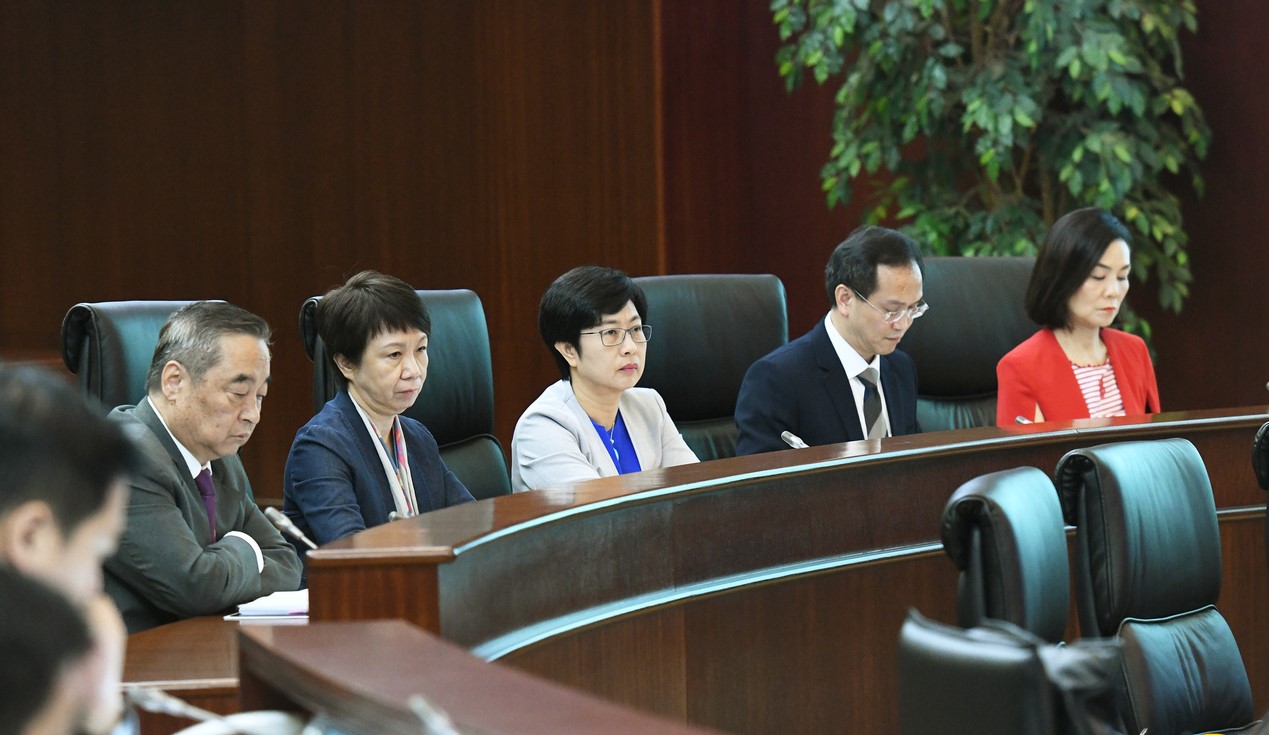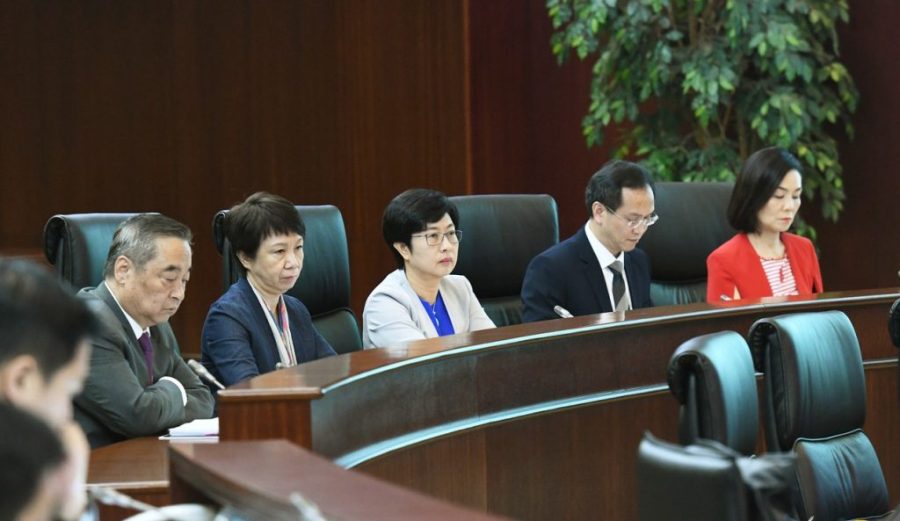Secretary for Administration and Justice Sónia Chan Hoi Fan said on Tuesday that the current systems to elect the chief executive and legislators are suitable for Macau.
Chan made the remarks when replying to an oral interpellation by directly-elected non-establishment lawmaker Au Kam San during a plenary session of the legislature.
In his interpellation, Au asked whether the government plans to reform the chief executive and Legislative Assembly (AL) elections, so that the chief executive election will ultimately be conducted by universal suffrage – one person, one vote, and that the percentage of the number of directly-elected seats in the legislature’s hemicycle will be gradually increased.
Au criticised the government for having refused to reform the two election systems since 2012 when the government amended both systems, which, according to Au, did not result in any democratic development.
Chan noted that the local government launched political reforms in 2012 for the chief executive election and the legislature’s direct and indirect elections – when the number of members of the Chief Executive Election Committee was increased to 400 from 300, and two seats were added for both directly- and indirectly-elected lawmakers so that the total number of legislators rose to 33 from 29.
After the political reforms in 2012, the chief executive was elected in 2014 by the 400-member Chief Executive Election Committee. The method for the upcoming election on August 25 of Macau’s next head of government remains unchanged.
After the 2012 political reforms, which raised the number of lawmakers to 33, the legislative elections in 2013 and 2017 involved the direct election of 14 lawmakers by popular vote and the indirect election of 12 legislators by association representatives. The remaining seven legislators continue to be appointees chosen by the chief executive.
Chan said that during the 2012 political reform process, the local government submitted a report to the central government proposing the changes to the methods for the chief executive and legislative elections after referencing views submitted by a large number of residents and opinions from various segments of civil society.
‘Healthier’
Chan also said that after “broadly” listening to opinions from civil society, the local government proposed changes to the Legislative Assembly Election Law in 2016. The amendment bill was passed by the legislature in December 2016. Chan said that the amendments to the rules in the Legislative Assembly Election Law have resulted in the legislative elections being carried out in a “healthier” way than before.
Chan said that the local government suggested changes to the Chief Executive Election Law last year, proposing that two members from among the local deputies to the National Committee of the Chinese People’s Political Consultative Conference (CPPCC) on the Chief Executive Election Committee be replaced by two members representing the Municipal Affairs Bureau (IAM). The amendment bill was passed by the legislature in December last year.
‘Reality’
Chan said experience shows that the current systems to elect the chief executive and legislators meet the needs of Macau’s current social development and Macau’s “reality”, and are widely recognised by civil society. She said that the top priority of the local government on the issue is to “consolidate the achievements” resulting from the 2012 political reform process.
According to the Macau Post Daily, Chan reaffirmed that any political reforms for the two elections would need to be based on consensus in civil society. She said that while one person, one vote is one form of democracy, it is not the sole form of democracy, adding that the local government needs to ensure that the two election systems are suitable for Macau’s socio-economic development.






